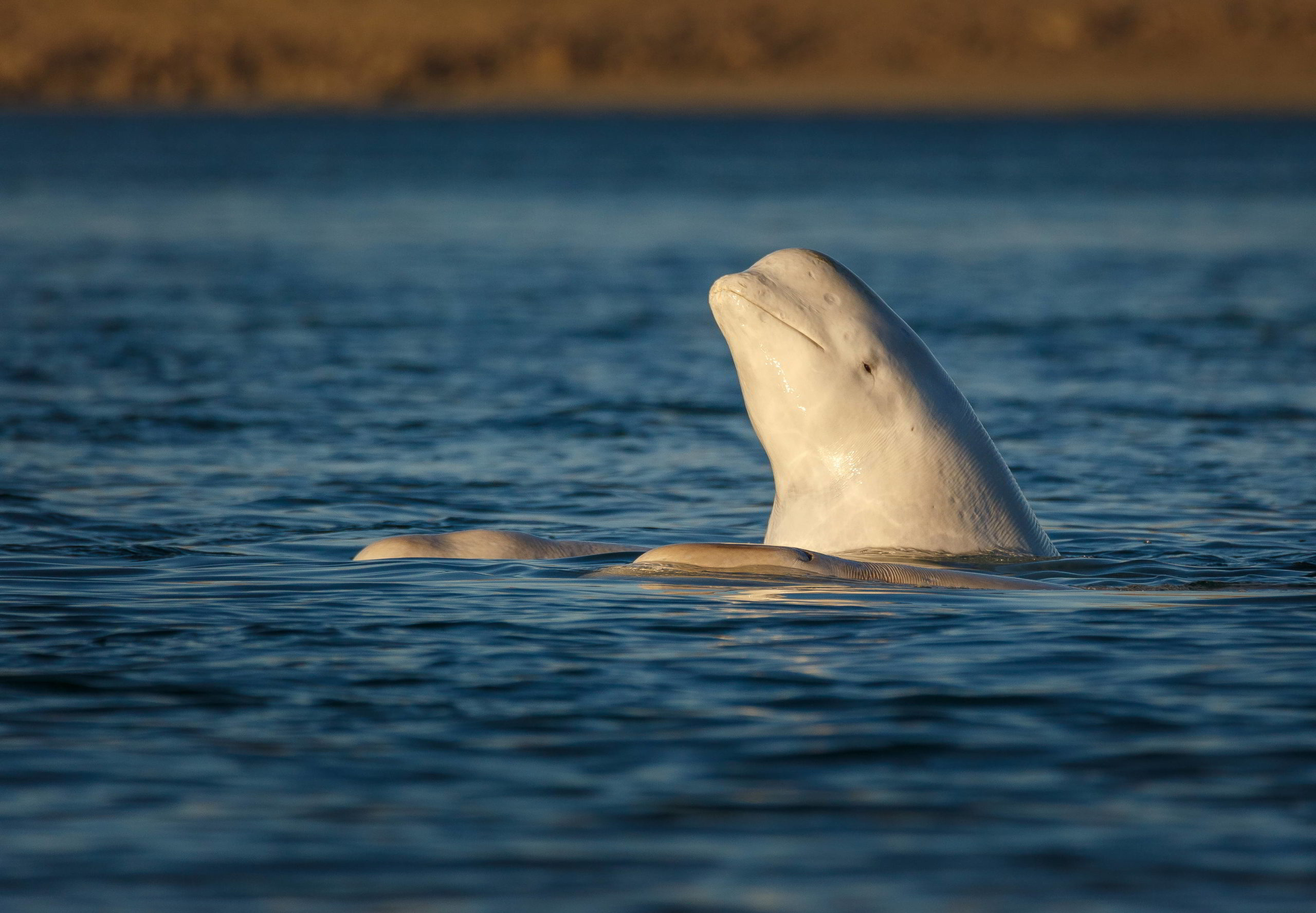Existing legal tools failing to protect Canada’s marine ecosystems from underwater noise: WWF-Canada
Legal analysis highlights current shortcomings and recommendations for strengthening national policy
June 7, 2024, TORONTO – The legal tools Canada has at its disposal to tackle underwater noise aren’t working. With some parts of the ocean already 100 times louder than they would be naturally, the clock is ticking for the federal government to create a consequential and comprehensive national strategy to protect marine ecosystems and species.
That is the conclusion of a new report — Canada’s Ocean Noise Strategy: Legislation and Policy Analysis — commissioned by WWF-Canada and conducted by East Coast Environmental Law and West Coast Environmental Law to identify faster pathways to mitigate this accelerating threat.
Commercial shipping was surging on both coasts even before the Trans Mountain pipeline started filling oil tankers in B.C.’s Salish Sea last month. The surge will continue when the LNG Canada liquified natural gas terminal in Kitimat will have tankers crossing the Great Bear Sea by mid-2025, and a $1.3 billion propane export terminal in Prince Rupert will be completed by 2026. Meanwhile, climate change will soon be opening new maritime trade routes across the still-quiet Arctic Ocean.
Ocean noise is not explicitly incorporated into existing marine conservation laws and regulations, or legislation regulating ocean-based industries. So, this legal analysis reviewed federal Crown law and policy on ocean management to identify mechanisms that Canada can use, or strengthen, to address this growing threat to marine life.
It found that the tools Canada already has to protect underwater soundscapes — through designated marine protected areas (MPAs), marine environmental quality (MEQ) guidelines, or under the Oceans Act, Fisheries Act, Canada Shipping Act 2001, and the Species at Risk Act — are underutilized and lack clear targets and important features that would make efforts to protect underwater soundscapes legally binding, measurable and enforceable.
The legal analysis also recommended a range of pathways for Fisheries and Oceans Canada, Transport Canada, Environment and Climate Change Canada, Parks Canada, and regulators of coastal offshore industries to work collaboratively to prioritize underwater noise such as:
- setting regional and subregional standards with noise thresholds;
- enacting concrete regulatory and management measures for MPAs that limit noise generating activities and preserve acoustic habitat for at-risk marine species;
- developing quantitative noise thresholds and reduction targets for the habitats of all listed aquatic species at risk that need quiet soundscapes for their recovery;
- imposing area-based noise reduction limits on coastal and offshore projects;
- requiring noise be addressed in environmental impact assessments;
- regulating noise thresholds, mandating areas to avoid and mitigation measures like ship speeds and restrictions and quiet technologies.
Still, these recommendations are only one element of a more comprehensive strategy, which is needed to truly address the impacts of underwater noise. The forthcoming Ocean Noise Strategy must lay the groundwork for a strong underwater noise policy that has the teeth to regulate, monitor and enforce noise limits and reduction targets.
Hussein Alidina, lead specialist for marine conservation at WWF-Canada, says:
“As noise levels in our oceans continue to rise, the current approach is not enough to protect marine life, including whales. The legal tools we have right now, even if used to their full potential, provide a temporary fix — what we need is a long-term solution that actually regulates underwater noise pollution.”
Mike Kofahl, Staff Lawyer at East Coast Environmental Law, says:
“Canadian laws responsible for marine conservation and ocean industries were not designed with ocean noise in mind — and that is a critical oversight that needs correction. A national ocean noise strategy with accompanying legislation that provides immediate and long-term solutions, like enforceable noise standards, is required if we are to mitigate the growing harms of underwater noise pollution.”
Stephanie Hewson, Staff Lawyer at West Coast Environmental Law, says:
“We know enough about the impacts of noise on marine wildlife to know it’s time to act. Our analysis shows that Canada has the ability to enact laws for a quiet ocean – including legally binding limits on underwater noise, and protections to create quiet acoustic sanctuaries for marine life to thrive. The ocean and the animals that call it home don’t have time to wait.”
ABOUT
World Wildlife Fund Canada
WWF-Canada is committed to equitable and effective conservation actions that restore nature, reverse wildlife loss and fight climate change. We draw on scientific analysis and Indigenous guidance to ensure all our efforts connect to a single goal: a future where wildlife, nature and people thrive. For more information visit wwf.ca.
West Coast Environmental Law
West Coast Environmental Law is a non-profit group of environmental lawyers and strategists dedicated to safeguarding the environment through law. West Coast works to transform environmental decision-making and strengthen legal protection for the environment through collaborative legal strategies that bridge Indigenous and Canadian law.
East Coast Environmental Law
East Coast Environmental Law is a public-interest environmental law charity that is committed to sharing our legal skills with those who seek environmental and climate justice for all species and the natural systems that support those species. We advocate for progressive environmental laws and policies for Atlantic Canada, provide public legal education, and share our legal skills to support individuals, communities, and organizations that are working to prevent or redress environmental harms.
For more information, please contact:
Emily Vandermeer, senior communications specialist at WWF-Canada
[email protected], 1-519-616-1556
Joshua Ostroff, senior manager, editorial at WWF-Canada
[email protected]


